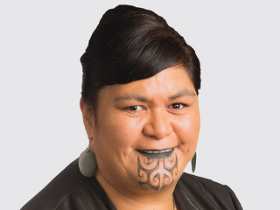
MANGAWHAI'S NO.1 NEWSPAPER
|
|
|
Council ownership of waters entities confirmed09 May, 2022
Fundamentally these reforms are about delivering clean and safe drinking water at an affordable price for New Zealanders. Without reform, households are facing water costs of up to $9,000 per year, or the prospect of services that fail to meet their needs, Robertson says. “Everyone accepts the need for change. You only have to look at the number of burst pipes, boil water notices and the volume of sewerage spewing into our harbours to see we can’t carry on as we are and that our water infrastructure is crumbling,” he says. “At the heart of councils concerns have been the issues of ownership and voice. By accepting the majority of the recommendations made by the independent Working Group on Representation, including a shareholding plan, we have listened to these concerns and modified our proposals accordingly. With the key issues now addressed we cannot afford to wait any longer. The costs to communities and ratepayers are just too big to ignore and we need to get on with fixing it.” Key aspects include: · Local council’s ownership of water entities confirmed and new shareholding structure put in place. · Local community and council voice further strengthened in Regional Representative Groups with the majority of Working Group recommendations accepted. · Co-governance on the board of the four water entities ruled out by Local Government Minister with board membership to be based on skill. · Equal representation of mana whenua and councils on Regional Representative Groups confirmed. · New model to save ratepayers thousands of dollars a year and delivers better water quality and safety. Nanaia Mahuta says the Working Group was tasked with addressing the issues of most concern to the sector and Cabinet has agreed to the majority of their recommendations that ensure councils, iwi and communities have a strong voice in the new entities. “I acknowledge the anxiety around change, but ratepayers and local communities cannot keep paying more and more for services that have been underinvested in for too long, and now put their health at risk. That’s why the government has extensively engaged with local government, iwi and hapu, the water industry for more than four years to understand the case for change and assess the best option for reform,” she says. “This is the best option to deliver the clean, safe and affordable drinking water New Zealanders deserve while also retaining community ownership and protecting against future privatisation. We are now at a point where the case for change is well made and the policy has been robustly tested and improved. We have listened to concerns and now is time to move forward with these reforms.” Co-governance arrangements such as the Regional Representative Group are not new Mahuta says, and many councils already have, and acknowledge the importance and benefit of such arrangements. The Waikato River Authority, set up by the previous Government, is one example, an established fifty-fifty co-governance of the Waikato River ‘and is a good working model of shared decision-making to improve the health of the river’. “The Regional Representative Group is not about ownership but rather ensuring community inclusion and voices are heard, securing a kaitiaki or guardianship role for the protection of our environment, and maintaining the focus on the long-term planning required for national infrastructure. It’s a model that makes sense and is already working well,” Mahuta says. “Without the changes we are making, all the evidence points to a legacy of broken pipes, outdated sewage plants, and potential repeats of the tragic Havelock North gastroenteritis outbreak that killed four people and made thousands sick. This should not be the case in a first-world country.”
“I acknowledge the anxiety around change, but ratepayers and local communities cannot keep paying more and more for services that have been underinvested in for too long, and now put their health at risk.” – Nanaia Mahuta |

 The Government has confirmed local council ownership and strengthened local voice by accepting the vast majority of the Three Waters Working Group recommendations on representation, governance and accountability, infrastructure minister Grant Robertson and local government minister Nanaia Mahuta announced on April 29.
The Government has confirmed local council ownership and strengthened local voice by accepting the vast majority of the Three Waters Working Group recommendations on representation, governance and accountability, infrastructure minister Grant Robertson and local government minister Nanaia Mahuta announced on April 29.
